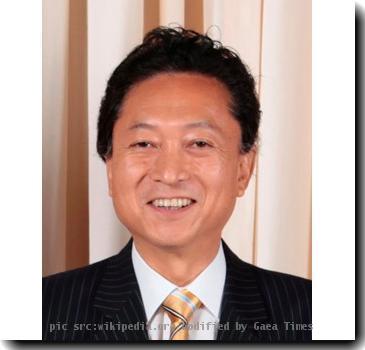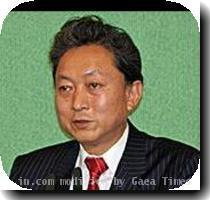Japanese families meet former NKorean spy, hope she can solve mystery over abductions
By Eric Talmadge, APWednesday, July 21, 2010
Japan hopes spy sheds light on NKorea abductions
TOKYO — Hoping to unravel a mystery that has haunted them for decades, the families of two Japanese abducted by North Korea met with a former spy who claims she knew the captives before she committed one of North Korea’s most notorious acts of terrorism — the bombing of a South Korean airliner in 1987.
The carefully orchestrated visit this week by former North Korean agent Kim Hyon-hui, who was sentenced to death but later pardoned for the bombing, has been hailed as a rare chance to re-examine one of the coldest of cold cases, the disappearance of 17 Japanese citizens Tokyo says were kidnapped by North Korea in the 1970s and ’80s.
But experts noted Kim has not lived in North Korea since her arrest after the bombing that killed 115 and was not likely have any fresh information.
The abductee issue has captivated attention here since Pyongyang acknowledged in 2002 — after years of denial — it had kidnapped 13 Japanese to train its spies. It returned five abductees but claimed the rest had died.
Japan disputes that and says as many as 12 Japanese may still be captive in the North. The two countries have been at loggerheads over the issue since the North’s admission, with virtually no progress made on the investigation.
Kim, who now lives in South Korea, says she knew two women who were abductees and has suggested they might be alive.
Soon after her arrival on a chartered jet under heavy security, Kim met Tuesday with relatives of Yaeko Taguchi, who was kidnapped from Tokyo in 1978 when she was 22.
Kim claims Taguchi helped her prepare for the airliner bombing by teaching her Japanese language and customs so she could pose as a Japanese tourist.
“Kim is an important living witness,” Taguchi’s brother, Shigeo Iizuka, said after their meeting.
Kim also claims she knew Megumi Yokota, who was taken in 1977 at the age of 13 on her way home from school. She met with Yokota’s parents on Wednesday, but details of the meeting were not released to the public.
“I just hope that this may in some way contribute to a resolution of the abductions issue,” Megumi’s father, Shigeru, said before sitting down with Kim at the summer home of former Prime Minister Yukio Hatoyama, where Kim is staying.
Yokota’s case has become an international cause celebre.
North Korea says Yokota suffered from schizophrenia and killed herself in a hospital on April 13, 1994. In 2004, North Korea handed over to Japan what it said were Yokota’s remains. Tokyo says the remains did not match her DNA.
Yokota’s tragedy has been made into a movie, and President George W. Bush said an April 2006 meeting at the White House with Yokota’s mother was “one of the most meaningful moments of my presidency.”
On Wednesday, Japanese Prime Minister Naoto Kan said he hoped Kim’s visit would shed new light on the fate of Yokota and the others and soothe the wounds of the abductees’ relatives.
“I have strong expectations that this visit will lead the freeing of the victims, even if only a single day sooner,” he said.
But some experts questioned that.
“I don’t think that Kim’s visit will lead to immediate results, but it is valuable nevertheless,” said Atsuhito Isozaki, a North Korea expert at Keio University in Tokyo. “In a sense, it is a performance. But it demonstrates that the governing party wants to seek progress, which is significant.”
Bringing the former spy to Japan is not without controversy.
“We decided to allow the visit because of the strong wishes of the families,” Justice Minister Keiko Chiba said. Because of Kim’s criminal record, Chiba had to issue a special order approving her entry into Japan.
South Korea permitted Kim to travel to Japan under the condition that security be strictly enforced, in part because they fear she could be the target of attacks by relatives of the bombing victims, or even of North Korean agents.
Kim is the daughter of a high-ranking diplomat and was a member of Pyongyang’s elite.
She was recruited as a spy when she was studying at Pyongyang University of Foreign Studies, where she majored in Japanese.
She told investigators she and a male North Korean agent, posing as a Japanese father and daughter, boarded the Korean Air flight from Baghdad to Seoul on Nov. 28, 1987. They planted a time-bomb on the plane after getting off in Abu Dhabi. The plane exploded the next day over the Andaman Sea near Burma, now Myanmar, according to a South Korean investigation.
She and her accomplice were arrested two days later in Bahrain, where they tried to kill themselves by taking cyanide concealed in cigarette filters. The man died, but Kim recovered and was extradited to Seoul.
North Korea has denied involvement, but the bombing prompted the United States to include the country on its list of terrorism-sponsoring countries.
Kim is now married to a South Korean intelligence officer who investigated her. She is a best-selling author, writing books about her time as a spy, but has kept a low profile in recent years.
Tags: Asia, Bombings, East Asia, Espionage, Japan, Kidnapping, North Korea, Pyongyang, Seoul, South Korea, Tokyo, Yukio Hatoyama

